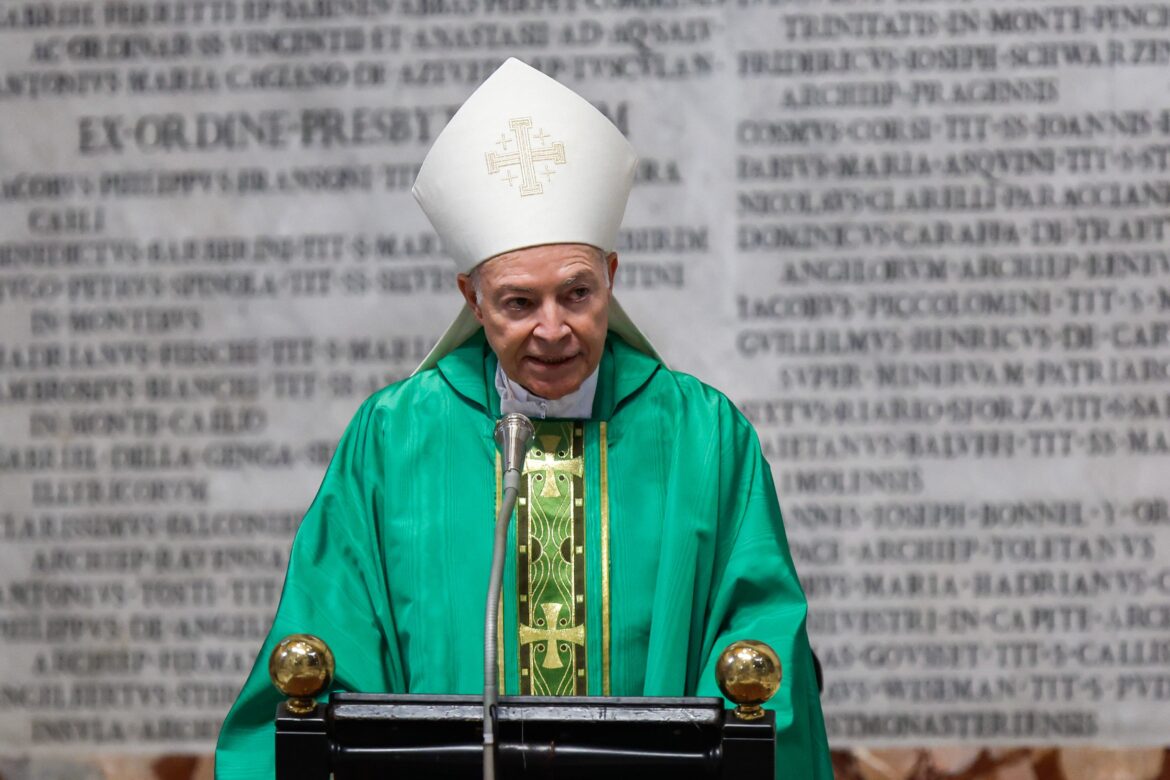VATICAN CITY (CNS) — Cardinal Carlos Aguiar Retes of Mexico City is admired as a pastor and biblical scholar and was a key ally of Pope Francis in implementing the Synod of Bishops on synodality — a central component of his pontificate — all of which place the Mexican cardinal high on the list of potential successors to the first Latin American pope.
At 75, Cardinal Aguiar is a well-known figure within the Roman Curia, serving as a member of the Dicastery for Culture and Education and the Pontifical Commission for Latin America, and he is prominent among the Latin American clergy as the former president of both the Latin American bishops’ council (CELAM) and the Mexican bishops’ conference.
Cardinal Aguiar served as one of nine president delegates for the Synod of Bishops on synodality, and he said during the first synodal assembly in October 2023 that he was “convinced” that synodality “is the way of the church.”
“If we do it, we will transmit the faith; if we don’t do it, we will turn into small groups of Catholics,” the cardinal said during a news conference.
Born the second of six children in Tepic, western Mexico, he entered the local seminary before continuing his theological studies at the Montezuma Seminary in New Mexico and the seminary in Tula, Mexico. He was ordained a priest at the age of 23.
Cardinal Aguiar earned a licentiate in sacred Scripture from the Pontifical Biblical Institute in Rome and was one of four scholars who prepared the “Biblia de América,” a biblical translation that sought to accommodate the different forms of Spanish spoken throughout Latin America.
He speaks Spanish, English, Italian, French and German, though he has said understanding spoken American English is still difficult for him.
St. John Paul II named him bishop of Texcoco in 1997. As secretary-general of the Latin American bishops’ council, CELAM, he participated in the 2001 Synod of Bishops at the Vatican where he met newly-created Cardinal Jorge Mario Bergoglio of Buenos Aires.
The two would collaborate again during the 2007 CELAM general assembly in Aparecida, Brazil, when then-Bishop Aguiar was vice president of CELAM and Cardinal Bergoglio was president of the commission that drafted the assembly’s final document, which many observers saw as an inspiration for the key aims of his pontificate.
In 2006, he became president of the Mexican bishops’ conference, serving two three-year terms. Pope Benedict XVI appointed him archbishop of Tlalnepantla in 2009, and he was president of CELAM from 2011 to 2015. Pope Francis elevated him to cardinal in 2016, making him the first cardinal from Tlalnepantla and surprising many by not instead choosing the archbishop of Monterrey, traditionally a cardinal’s see.
The following year, the pope named Cardinal Aguiar archbishop of Mexico City, handing him the reins of one of the largest archdioceses in the world serving some 8 million Catholics at the time. The cardinal pushed for the archdiocese to be divided in order to bring pastors “closer to all the inhabitants” of the Mexico City, and in 2019 Pope Francis approved the creation of three new suffragan dioceses.
In 2020, Cardinal Aguiar voiced support for civil unions for same-sex couples, saying “everyone has the right to a family,” and in 2021 he criticized a Mexican Supreme Court ruling that opened the path for the decriminalization of abortion at the federal level, calling abortion a “false way out” for a woman with an unexpected pregnancy.
The cardinal has called social inequality the most pressing issue facing Mexican society.
Whether his fellow cardinal-electors would again pick a pope from Latin America remains a doubt, though the region is home to an estimated 40% of the global Catholic population.
According to Vatican statistics for 2023 (which group North, Central and South America together), the Americas have the highest Catholic population by percentage of total population, 64.08%, whereas Europe’s population, which comes in second, is 39.58% Catholic.




